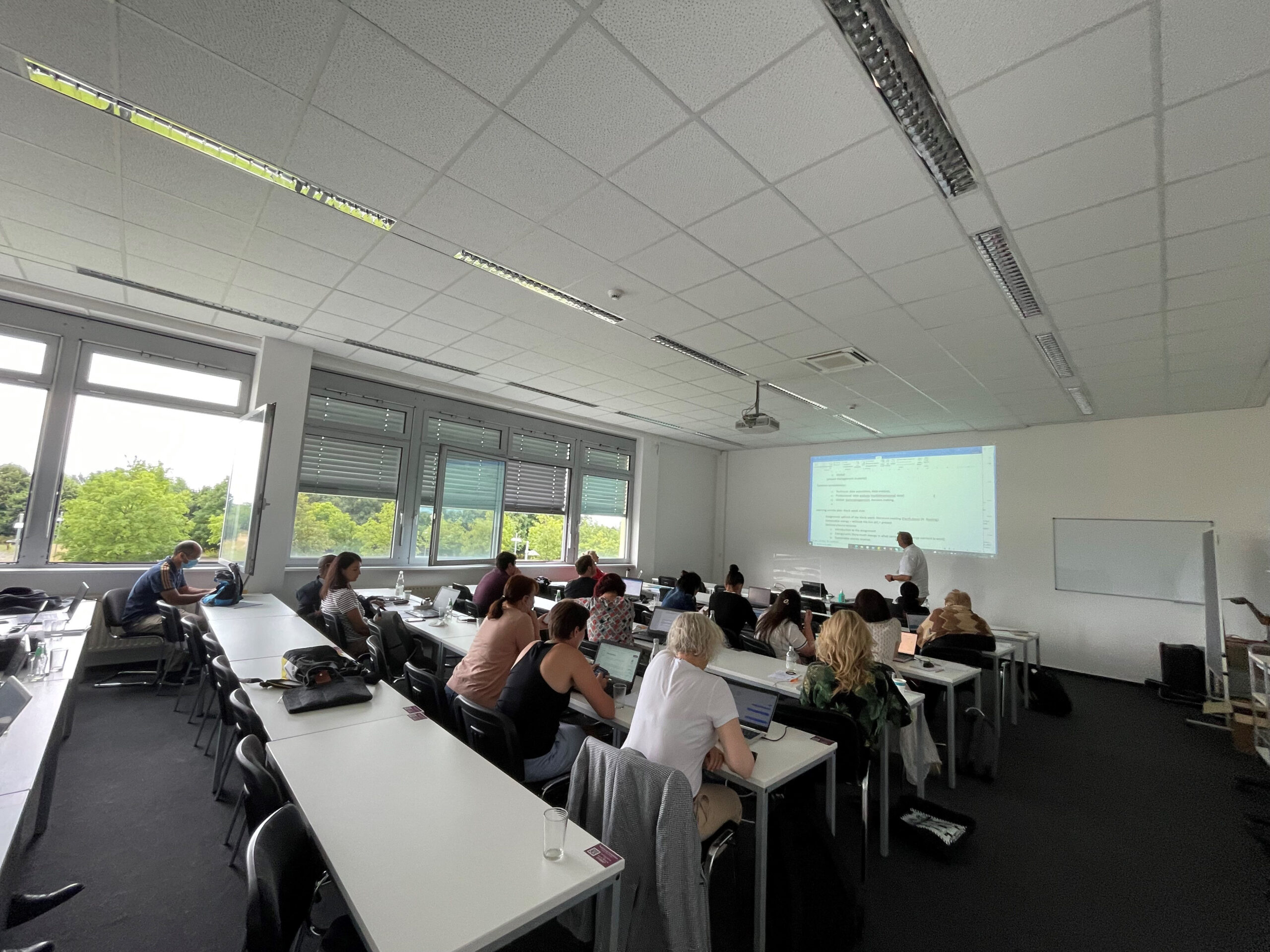After the Dortmund International Research Conference, the Dortmund International Summer School took place on-site again, between 4th and 8th of July 2022, organised by the EuroPIM Consortium in cooperation with Fachhochschule Dortmund and other international partners.
During the Summer School a three-days Train-the-Trainer event took place, between 4th and 6th of July, organised in frames of Erasmus+ KA2: Knowledge Alliance “Projects for the Digital Transformation” (ProDiT). The event on “Problem- and Challenge-based Learning to Train Essential Skills within the Project Environment” was designed for lecturers, trainers, PhD students, researchers on project-based education, and welcomed 42 participants from partner universities in Azerbaijan, Belgium, Kazakhstan, Lithuania, Spain, Ukraine and Palestinian Territories. During the three-days’ workshop participants got lectures and exercised in problem- and challenge-based learning, developing the course concept including the intended learning outcomes, project case development, project team formation strategies and shaping the outlook on future train-the-trainer activities.
Trainers (Neringa Dubauskiene, KTU, Kaunas; Carsten Wolff, Nargiza Mikhridinova, Nicola Vollmar, FH Dortmund; Bertha Joseph Ngereja, NTNU, Trondheim) offered the participants to fulfill the next learning outcomes:
- Applying problem- and challenge-based learning (PBL/CBL) for didactic purposes
- How to plan, prepare and conduct agile cross-border projects with industry involvement for educational purposes
- How to select a relevant project case and prepare it further for the project work
- How to build the balanced student teams for better training of transversal skills
- How to operate moodle as an e-learning environment
- How to apply results-oriented evaluation of learning activities
Participants were actively involved in various discussions and openly shared their experiences in training and teaching. As per feedback, participants highlighted that they were lacking “specific skills related to how to interact with others and how to get feedback in an online environment”, and underlined that “there are certain conditions to be met in order to work efficiently together in a team”, that they will “implement several digital tools for a team set up”, and regarding the challenge-based learning, participants said they would “try to work with it further and include into the teaching process”, “use it in developing the courses”. All-in-all, participants found the content and organisation well prepared; some participants mentioned that they were “surprised about the learning experiences related to Problem- and Challenge-based learning.”.
They say: “I was a bit skeptical at first, but discussing opportunities and possible learning outcomes it convinced me to do something with this type of learning methodology. The same goes for the personality tests. I do however need more info about the practical implementation, but I’m willing to experiment on this”.
Some mentioned they have improved their “knowledge on how to prepare and conduct agile cross-border projects with industry involvement for educational purposes” and others concluded that “challenge-based learning allows teachers and students to work together, to learn about compelling issues, propose solutions to real problems, and take action”.


